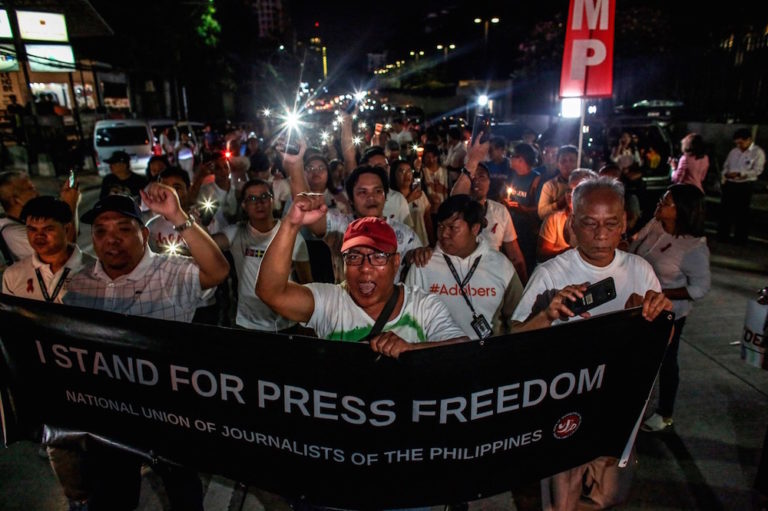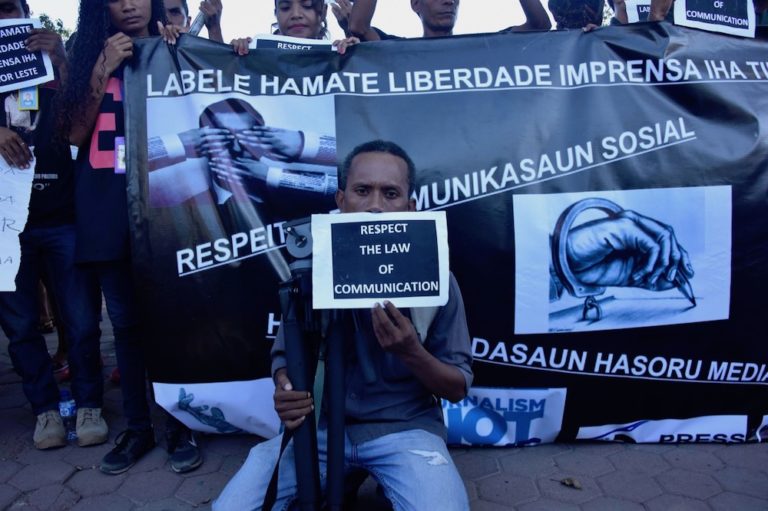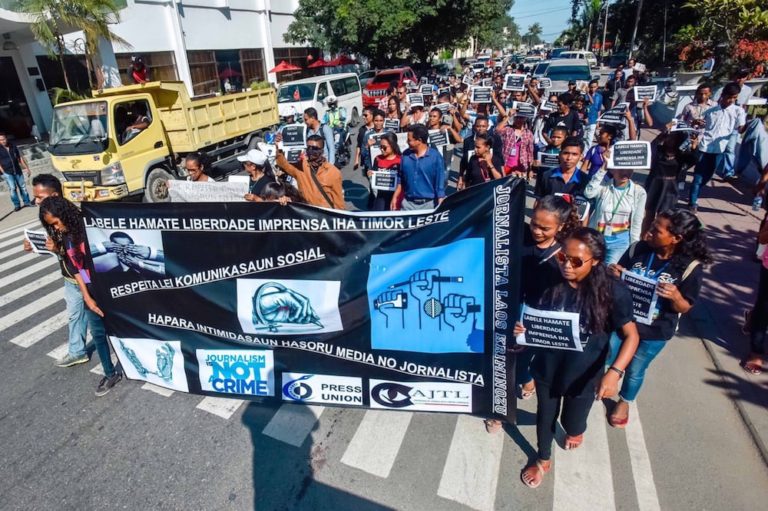(SEAPA/IFEX) – SEAPA has expressed alarm over the media situation in East Timor after Prime Minister Mari Altakiri signed an executive decree approving a penal code that criminalises defamation. On 6 December 2005, government spokesman Rui Flores issued a statement saying the penal code drafted by the Ministry of Justice had already been signed by […]
(SEAPA/IFEX) – SEAPA has expressed alarm over the media situation in East Timor after Prime Minister Mari Altakiri signed an executive decree approving a penal code that criminalises defamation.
On 6 December 2005, government spokesman Rui Flores issued a statement saying the penal code drafted by the Ministry of Justice had already been signed by the Prime Minister and would enter into force at the beginning of 2006. In September 2005, the East Timorese parliament voted to give the Prime Minister executive powers to enact the law.
The legislation was decreed despite strong resistance from Timorese journalists and legal experts, who had also pushed for parliamentary debate and public consultations on the matter.
SEAPA said it was “regrettable” that calls for consultations had gone unheeded. The alliance, Southeast Asia’s leading advocate for press freedom, also said it was dismayed that the new country would lay foundations that would compromise its own vision for a genuinely free society.
The penal code sets no limit on fines and other penalties for defamation. Under Article 173 of the new penal code, journalists can face three year’s imprisonment for publishing statements deemed to defame public officials. Legal experts in Dili have voiced concern that the law fails to provide protection from charges of defamation for “reasonable” publication of facts. They also note that the penal code gives more protection to leaders and public officials than to ordinary citizens.
“The new laws will dissuade journalists from speaking up on good governance and transparency in the conduct of state affairs,” SEAPA warned. “It will also stifle the freedom of expression the East Timorese need to participate in and advance their hard-won democracy.”
SEAPA noted that East Timor is scheduled to hold its next presidential and national elections in 2007. The organisation fears the new penal code will undermine the public’s right to be informed about their current and aspiring leaders.
SEAPA also shared concerns expressed by the country’s legal experts that provisions for criminal defamation are especially dangerous in a country where the judiciary is still weak and inexperienced.”Criminal defamation provisions could be misapplied or broadly interpreted, to the detriment of freedom of expression,” the Alliance warned.
Starting in 2002, media advocates in East Timor saw a rise in threats of defamation and verbal harassment from leaders and individual government members, as the new nation’s journalists moved beyond routine reporting to practicing a more critical form of journalism.


